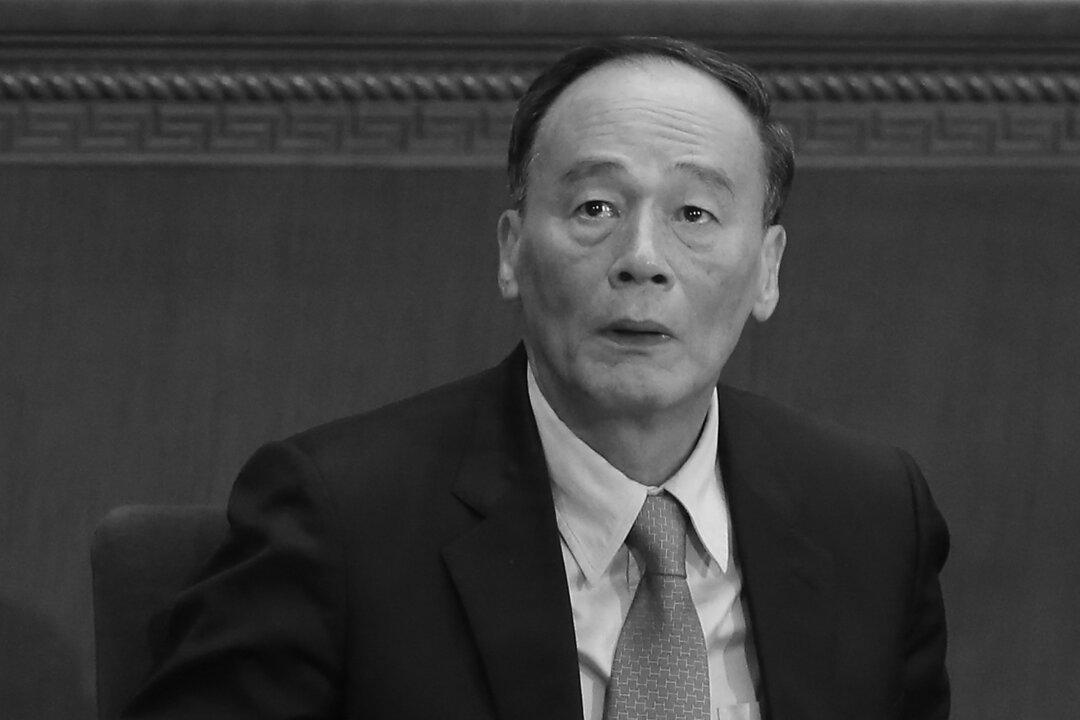Months ago it was widely reported that the Chinese Communist Party’s anti-corruption chief Wang Qishan would be visiting the United States to broker an extradition deal for run-away Chinese officials—but he is now said to have canceled the trip. And there are some good reasons why.
Most obviously, it’s difficult for the United States to negotiate on extraditions with the Chinese regime because of the lack of an independent judiciary in China, and because of the widespread abuses of those in custody. No American president would want to oversee a deal in which officials are sent back to China and then tortured, and put through a show trial.
Such concerns may have been behind the decision for Wang Qishan to call off his planned US trip, after he was unable to secure an extradition agreement, according to the Chinese-language website Mingjing on May 16. Future trips have been postponed “indefinitely,” according to Mingjing.
Ho Pin, the founder of Mingjing News, told Voice of America’s Chinese language service that his paper received information of Wang’s cancelled trip from readers, and Mingjing later verified the information’s authenticity “through official channels.” Mingjing is known to traffic in top-level political news from major Party factions.
The reports of Wang’s plans to visit the United States were not officially confirmed by either government, lessening the potential embarrassment of a failure to broker a deal immediately.
Wang Qishan is Chinese leader Xi Jinping’s closest ally, and the public face of the anti-corruption push. On the surface it appears to be a campaign promoting clean government, but in many ways it is a classic Party purge, meant primarily to dismantle the extensive political network of former Party godfather Jiang Zemin.
Since Xi’s campaign began in early 2013, over a hundred “big tigers”—Party language for corrupt high ranking officials—have been purged, including the likes of former security czar Zhou Yongkang and top military leader Xu Caihou.
Sensing the tightening noose, many corrupt officials ship their fortunes offshore and flee abroad, with the United States being a favored destination.
The Chinese regime has already launched two initiatives to apprehend absconded officials—Operation Fox Hunt in 2014 and “Sky Net“ in April this year. Anti-corruption investigators have also handed global policing organization INTERPOL a list of 100 allegedly fugitive officials and business people , and a “priority list” of 150 Chinese officials hiding in the United States.
Wang Juntao, a Chinese scholar and dissident, says that the U.S.’s democracy, and “genuine rule of law,” means it won’t hand over runaways to “a totalitarian regime with China’s legal system under its thumb,” in an article on the Chinese political website New Century.
Jerome Alan Cohen, a law professor at New York University, shares the same opinion—in an interview with VOA Chinese, Cohen said: “How can the US sign an extradition agreement with a country that casually accuses its people? We can’t send people back to China, where there is no proper justice or legal system.”
“No democracy will risk signing an extradition treaty with China,” Cohen adds.
Given China’s human rights abuses, Wang Juntao argues the U.S. government cannot in good conscience hand over the suspected fugitives to face detention and interrogation in what seems like a Party factional struggle.
In fact, China’s human rights record is precisely why Wang Qishan won’t travel to the U.S., Cohen said. “Wang Qishan is a smart man. He knows if he comes here, all the focus will be on the inadequacies of the Chinese criminal justice system.”
Finally, Wang the intellectual claims that Wang the anti-corruption chief cannot legally negotiate with the U.S. government because he is a Communist Party official, and some of the listed fugitives do not come under the jurisdiction of the Central Commission for Discipline Inspection, which is a Party agency and technically responsible for disciplining only Party members.




